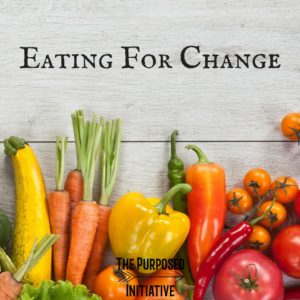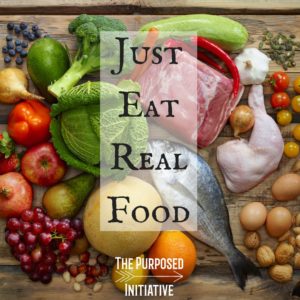
As someone who grew up with food allergies, and then developed more as an adult, food has always been a central issue in my life. Since my childhood I have been allergic to eggs and nuts. This was annoying at times, especially as a kid when I had to miss out on birthday cakes and the like; but given I grew up with these allergies they have become less of an issue for me over time. In my mid-twenties I started having significant issues with my skin, and through a variety of testing I discovered that I had developed more allergies including potato and corn. This meant a big change to my diet and even more restrictions which was harder to adapt to as an adult than growing up with allergies as a child. Now I could blame the unhealthy diet that I talked about last week on these issues with food, and to an extent they contributed to my mindset around eating, but the truth is I just got lazy. I figured that given there was so much healthy stuff making me sick I may as well just eat rubbish. 
Fast-forward a few years and while my skin had improved, my weight had increased and the rest of my health had gone downhill. When I realised that going to the gym wasn’t the whole solution, I started doing some reading and research into how I should be eating and what I needed to do to get things back on track. After filtering out all the fad diets and magic pills, there have been a few simple rules that I have found that have helped me (in conjunction with exercise) to get my health back on track, get down to a healthy weight, and stay there. Today I’m going to talk about those, not because I’m trying to say I’m an expert or it’s some magic cure, but because I believe that by following these few things you can make big changes.
- Cut back the crap: I was going to come up with a clever and creative name for this one, but then I gave up on that and decided to just say it how it is. One of the first steps to healthier eating it cutting back on the unhealthy foods in our diets. When I talk about healthy food I’m talking about fresh fruit and veggies, lean meat and wholemeal grains. When you use prepared or processed things, try to find things with as few ingredients as possible and avoid too many preservatives and mystery numbers. Watch out for highly processed foods full of preservatives and artificial additives, as well as being careful for things like health bars and “diet” or “light” options which can be full of added salt or sugar. These foods should be very limited in our diets, I’m not going to say you should cut them out completely, but the less the better. One guideline I heard early on was 80/20, where you eat healthy foods 80 percent of the time and allow yourself other foods 20 percent of the time. Obviously the more you can eat healthy the better, but 80/20 is a good starting point.

- Know what your body needs: There is no one diet that is perfect for everyone, and each person’s body is a little bit different. Obviously my allergies have a significant impact on what I eat, but I’ve realised I need to focus on what I can eat rather than what I can’t. It is important when thinking about what we are eating and drinking to consider just how much our body needs. All foods and drinks (except water) contain calories, and our bodies need a certain number of calories each day to function healthily. This number is impacted by a lot of factors including our age, sex, size and physical activity level. The difficulty is that often we consume more than we need, and when we want to lose weight we cut back more than we should. Calories themselves are not the enemy (neither are carbs, but I’ll get to that), it’s just a matter of being sensible about how many we consume relative to what our body needs. There are a lot of calorie calculators and meal guides online, but for a personalised guide of what your calorie needs and the best ways to meet these needs a good starting point is to have a chat to a dietician, your doctor or a personal trainer.
- Don’t exclude whole food groups: A lot of diets that you will find out there will tell you to cut our or dramatically reduce consumption of specific food groups, such as grains, dairy or even fruit (I’m looking at you paleo). With the exception of those who are vegan or vegetarian for ethical reasons, or those who have allergies and intolerances, there’s no need to completely exclude any food groups. As I’ve said, high sugar/salt/artificial foods should be limited, but even they don’t need to be completely excluded. Food should be enjoyed, and sometimes this will mean having some chocolate or cake or chips, but it’s about having those things in moderation and making sure the majority of your diet is fresh and natural.

- Avoid gimmicks: This is a pet hate of mine: magic pills or potions that promise to enable you to eat whatever you want and still stay fit as a fiddle, or miracle diets that offer to get you bikini body ready in 6 weeks. If it sounds too good to be true, it is. Simply put, the best way to get healthy and stay healthy is to eat appropriate servings of real food. Avoid meal replacement shakes and fat-burning tablets like the plague, these are stop-gap measures that are questionable at best in their effectiveness (no matter what the advertising says). You also can’t stay on them forever, so at some point you’re going to have to go without them. The truth is you are far better to educate yourself on how to eat well and work to get it right than waste your money on any of these.
As you can see, there’s nothing ground breaking or revolutionary in what I’ve said. The reality is it’s all fairly simple, straightforward advice. And for me that’s the thing with good nutrition, so often we over-complicate it in the search for quick and easy results. The problem with quick and easy results is we can lose them just as quickly and easily if we haven’t got a good foundation. These points provide a good, basic foundation that, in conjunction with a little commitment and discipline, can give you the basis for some great outcomes. Next week we’ll take a look at some of the things I’ve learned about exercise to go with good nutrition.

Brilliant my man. Good common sense advice. Learnt something today myself. Doing a brilliant job with the initiative. I hope many are paying attention. Good stuff in all your writings.